Last-Minute NYC Holiday Gift Guide 🎁
We’ve created a holiday gift guide with presents for the intrepid New Yorker that should arrive just in time—


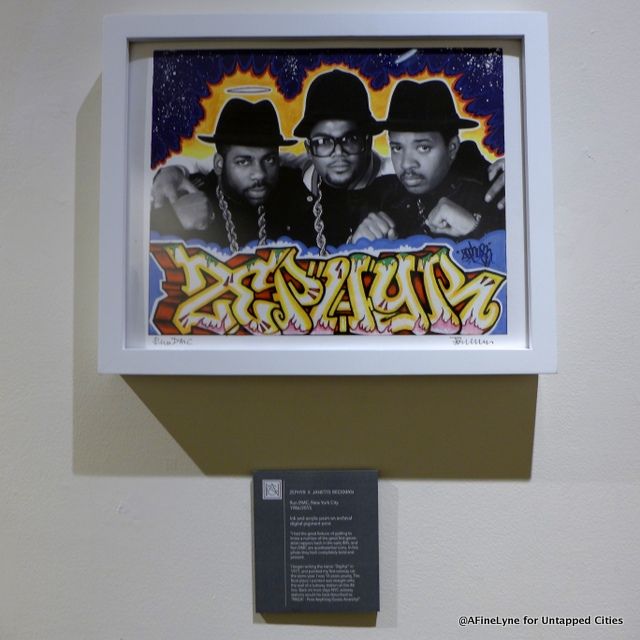
Zephyr, Janette Beckman – Run DMC, New York City, 1986.
As graffiti writers rose to prominence during the early 1970s, hip hop was a logical partner. With similar identities in the same culture, it was not uncommon for graffiti writers to design clothing or create graphics for album covers. Janette Beckman, who describes herself as a documentary photographer, began shooting for music magazines such as The Face and Melody Maker before moving to New York permanently in 1982. She was instantly drawn to hip hop, an emerging movement at that time, and was there to capture the iconic timeline during the beginning years.
Beckman’s work, which is widely published, appears on major record labels, and in magazines including Esquire, Rolling Stone, Italian Vogue and many more. This selection of work, entitled “Mash Up” was conceived and curated by artist/designer Cey Adams. Adams selected the artists, and Beckman let each artist choose a photo from her archives. The photographs were taken between the years 1977-1990, and walk the viewer through Hip Hop’s beginning years to mainstream popular culture. Below is a small selection of the exhibit currently on view at The National Arts Club.
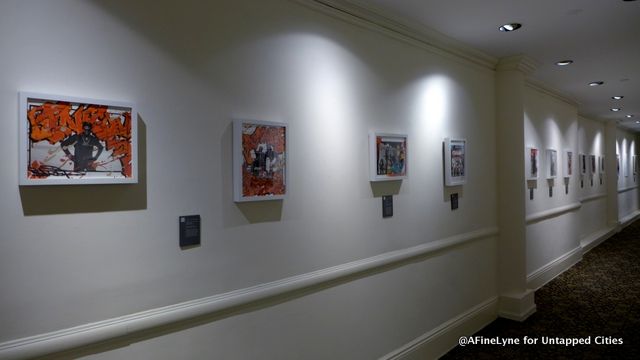
The exhibit, in the Marquis Gallery, Janette Beckman with Cey Adams: Mash Up
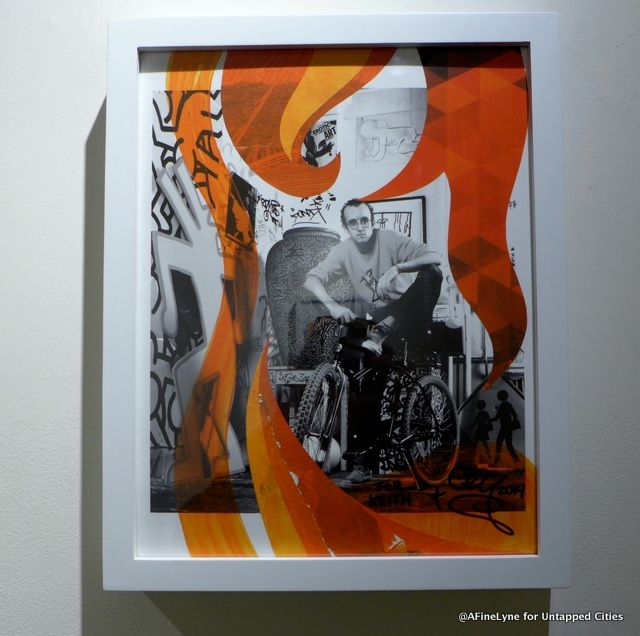
Pictured: Keith Haring. Photo Janette Beckman. Artwork, Cey Adams
Cey Adams is a contemporary of Jean-Michel Basquiat and Keith Haring. He appeared in the 1982 PBS documentary Style Wars which tracked the subway graffiti in New York. As the Creative Director of Russell Simmons’ Def Jam Recordings, he co-founded Drawing Board, the label’s in-house visual design firm, which created visual identity campaigns for artists like Run DMC, Beastie Boys, LL Cool J, Public Enemy, Jay Z and many more. His history with each of these artists is what brought this exhibit to life.
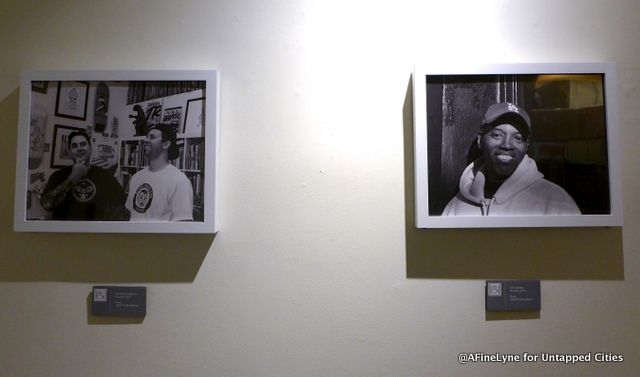
Pictured L-R, Morning Breath (Doug Cunningham & Jason Noto); Cey Adams, 2014. Photo Janette Beckman
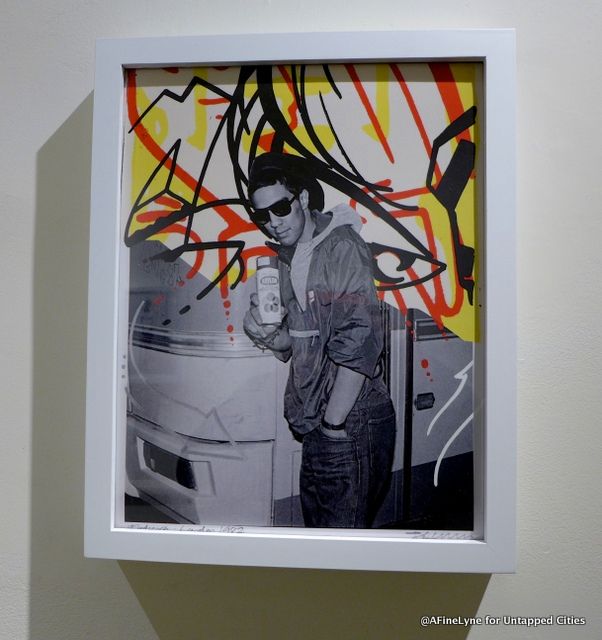
CRASH, Janette Beckman. Futura, London 1982
John CRASH Matos is regarded as a pioneer in the graffiti art movement dating back to 1974. He began graffiti bombing a year later in the train yards at the age of 13, and is part of the elite group of graffiti artists who transitioned from trains and walls to galleries in the 1980s. CRASH curated the exhibit “Graffiti Art Success for America” at Fashion MODA (1980), giving more exposure to the graffiti movement. His work resides in many permanent museum collections throughout the world, and commercially, he has partnered with such well-known labels as Absolute Vodka, Fender Guitars, SoBella Handbags, Tumi Luggage and more.
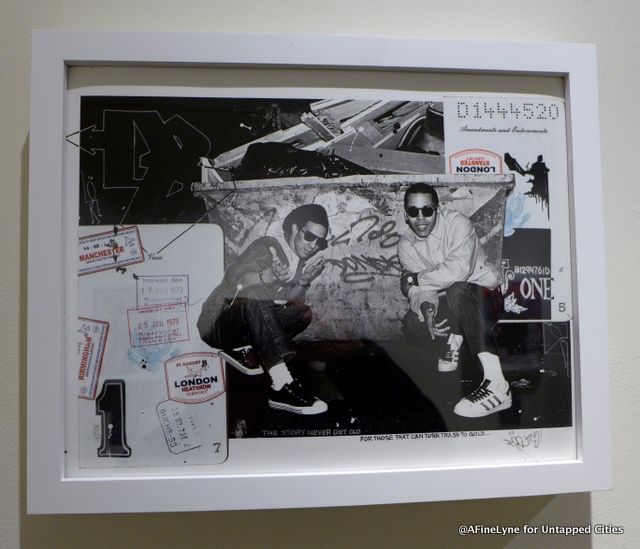
DOC TC5. Photo Janette Beckman
In the 1980s, the crew TC-5 emerged from the earlier 1970s crew, The Crazy 5, with a new generation of writers that included such well-known artists as DOC and Lady Pink, among others. DOC picked up his first spray can at the age of 13, painting the bleachers in the handball court in Cypress Hill’s Projects.
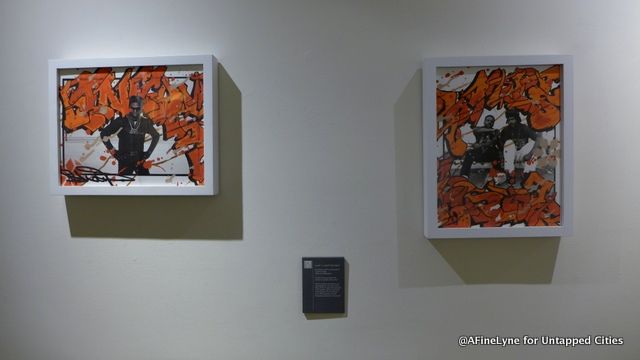
SHARP. Photo Janette Beckman
Aaron ‘SHARP’ Goodstone (below) was one of the pioneering artists, with his wild-style lettering on the 6 line of the IRT. His words “we brightened the destroyed city, turning deferred-maintenance wrecks into brilliant canvases” are a good description of the Bronx during that time. He has a deep connection to Beckman, with the feeling that her photographs are forgotten postcards of his youth.
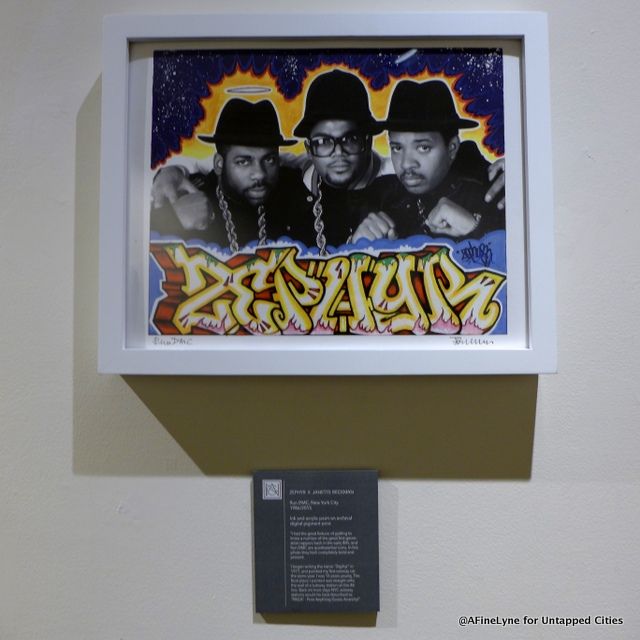
Zephyr, Run DMC, New York City 1986. Photo Janette Beckman
Run DMC, which was founded in 1981 in Hollis, Queens, has been acknowledged as one of the most influential in the hip hop culture. They were the first group in this genre to have a gold album (1984), and be nominated for a Grammy Award. They were the first to earn a platinum record (King of Rock, 1985), the first to earn a multiplatinum certification (Raising Hell, 1986), the first to have videos on MTV, and the first to appear on American Bandstand and on the cover of Rolling Stone.
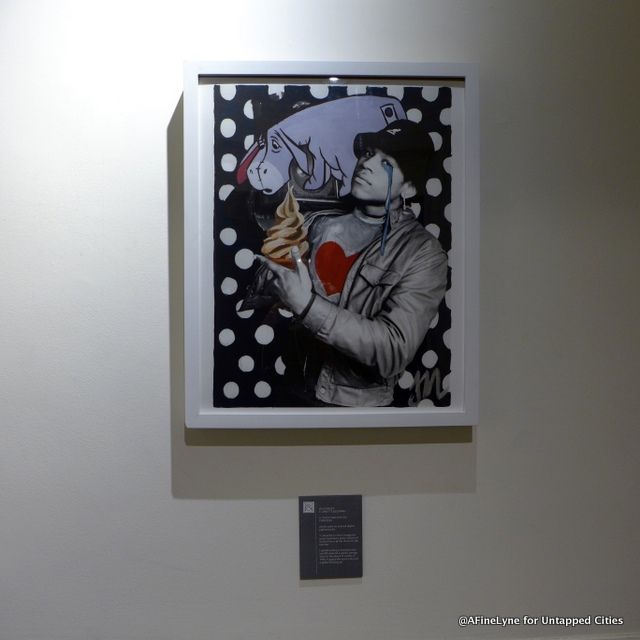
Jules Muck, LL Cool J, New York City, 1985. Photo Janette Beckman
Jules MUCK began writing in Greece in the 1980s on the island of Lesbos. The artist “Lady Pink” (Sandra Fabara) discovered MUCK bombing on a Bronx rooftop in the late 1990s. She apprenticed under Lady Pink for the next four years, putting her name front and center, as she went on to show at Tokyo Big Site, the Bronx Museum of the Arts, and many other institutions. She is heavily published and included in Ganz’s “Graffiti Women,” Cey Adams’s “DEFinitions,” and both of the Murray’s books “Burning New York” and “Broken Windows.”
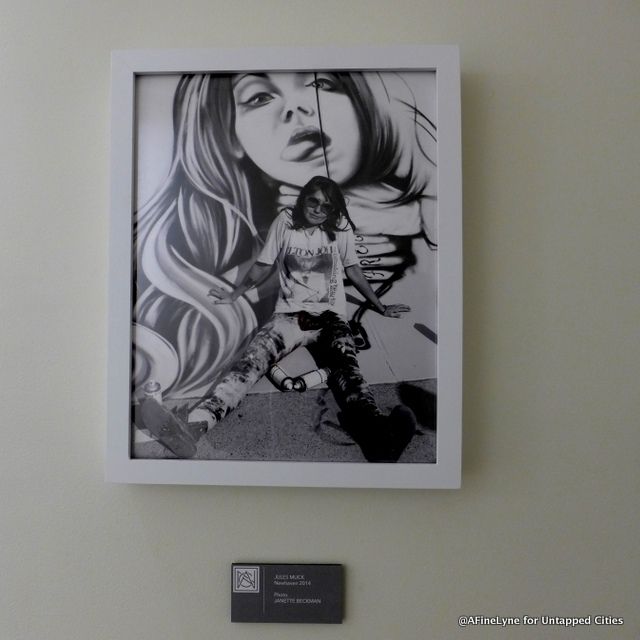
Jules Muck, Newhaven, 2014. Photo Janette Beckman
“Janette Beckman and Cey Adams: Mash Up” will be on view through January 2, 2016 atThe National Arts Club, 15 Gramercy Park South.
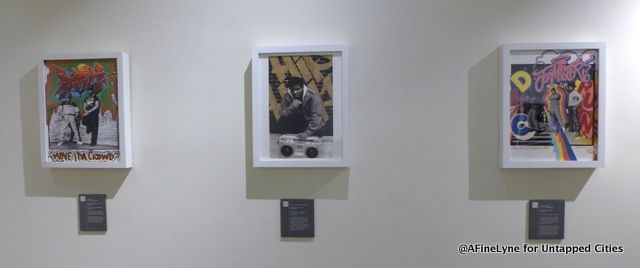
From L-R, FAUST, Afrika Bambaataa, Bronx, 1983; Queen Andrea, Run DMC, Hollis Queens, 1984; CES, Big Daddy Kane, New York City, 1988. Photo’s, Janette Beckman
For more on the history and art of hip hop click here. Graffiti can be found here. Take a look inside the National Arts Club here. Get in touch with the author at AFineLyne.
Subscribe to our newsletter